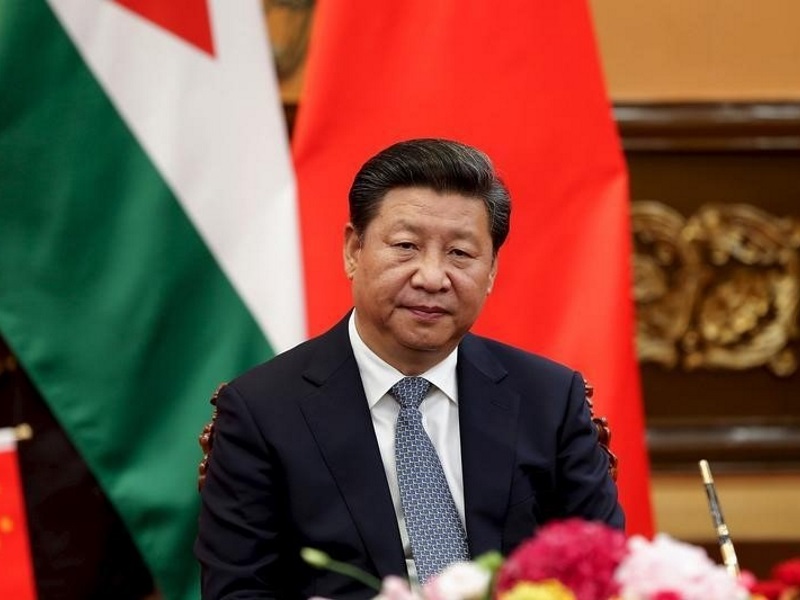- Home
- Internet
- Internet News
- China Says Committed to Countering Internet Hacking
China Says Committed to Countering Internet Hacking

Tensions over cyber-security will take centre stage during a trip by Chinese President Xi Jinping to Washington next week, Xi's first state visit to the United States.
Obama told executives on Wednesday the United States has emphasised to China that industrial espionage in cyberspace would be considered an "act of aggression", and called for an international framework to prevent the Internet from being "weaponized".
Beijing and Washington face "common challenges" on Internet security, making it "especially important for the two sides to increase mutual trust and cooperation in cyberspace", Chinese Assistant Foreign Minister Zheng Zeguang said.
"At the same time, the Chinese government firmly safeguards its own interests in cyberspace and is resolutely opposed to any statements or actions that harm China's interests," Zheng told reporters at a briefing on Xi's state visit.
Zheng said "we can cooperate and we should cooperate", including on setting international Internet standards.
Last week, U.S. officials said Washington was considering sanctions against both Russian and Chinese individuals and companies for cyber-attacks against U.S. commercial targets.
However, a person briefed on the White House's thinking said on Tuesday the United States does not plan to impose sanctions on Chinese entities for economic cyber-attacks ahead of Xi's visit to avoid what would be seen as a diplomatic disaster.
The New York Times, citing unidentified sources, reported that Beijing had sent a letter to some U.S. firms earlier this summer asking them to promise they would not harm China's national security and would store Chinese user data within the country.
Law enforcement cooperation is also likely to be on the agenda during Xi's visit, with Beijing pushing Washington for help in tracking down and repatriating dozens of alleged Chinese fugitives living in the United States who are wanted in China as part of a widespread crackdown on corruption.
U.S. officials say they are not averse to such cooperation but that, despite requests, Beijing has failed to produce the kind of evidence of criminality needed under American law to support deportation.
Zheng said Beijing had provided "ample" evidence.
"The name list for recovering dirty officials and dirty assets overseas that China has provided was made after a process of strict verification," Zheng said.
Xi has launched a sweeping campaign against graft after assuming power three years ago, but has been hampered to an extent by difficulty in getting back individuals deemed corrupt who have fled abroad.
© Thomson Reuters 2015
For the latest tech news and reviews, follow Gadgets 360 on X, Facebook, WhatsApp, Threads and Google News. For the latest videos on gadgets and tech, subscribe to our YouTube channel. If you want to know everything about top influencers, follow our in-house Who'sThat360 on Instagram and YouTube.
Related Stories
- Samsung Galaxy Unpacked 2025
- ChatGPT
- Redmi Note 14 Pro+
- iPhone 16
- Apple Vision Pro
- Oneplus 12
- OnePlus Nord CE 3 Lite 5G
- iPhone 13
- Xiaomi 14 Pro
- Oppo Find N3
- Tecno Spark Go (2023)
- Realme V30
- Best Phones Under 25000
- Samsung Galaxy S24 Series
- Cryptocurrency
- iQoo 12
- Samsung Galaxy S24 Ultra
- Giottus
- Samsung Galaxy Z Flip 5
- Apple 'Scary Fast'
- Housefull 5
- GoPro Hero 12 Black Review
- Invincible Season 2
- JioGlass
- HD Ready TV
- Laptop Under 50000
- Smartwatch Under 10000
- Latest Mobile Phones
- Compare Phones
- Moto G15 Power
- Moto G15
- Realme 14x 5G
- Poco M7 Pro 5G
- Poco C75 5G
- Vivo Y300 (China)
- HMD Arc
- Lava Blaze Duo 5G
- Asus Zenbook S 14
- MacBook Pro 16-inch (M4 Max, 2024)
- Honor Pad V9
- Tecno Megapad 11
- Redmi Watch 5
- Huawei Watch Ultimate Design
- Sony 65 Inches Ultra HD (4K) LED Smart TV (KD-65X74L)
- TCL 55 Inches Ultra HD (4K) LED Smart TV (55C61B)
- Sony PlayStation 5 Pro
- Sony PlayStation 5 Slim Digital Edition
- Blue Star 1.5 Ton 3 Star Inverter Split AC (IC318DNUHC)
- Blue Star 1.5 Ton 3 Star Inverter Split AC (IA318VKU)

















